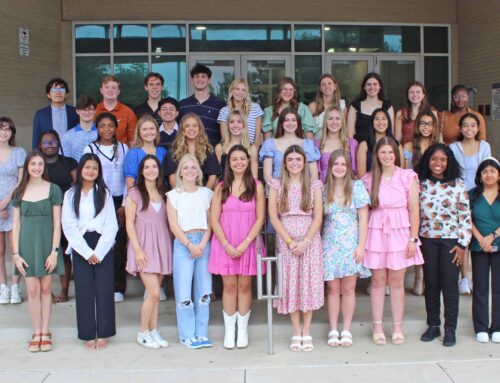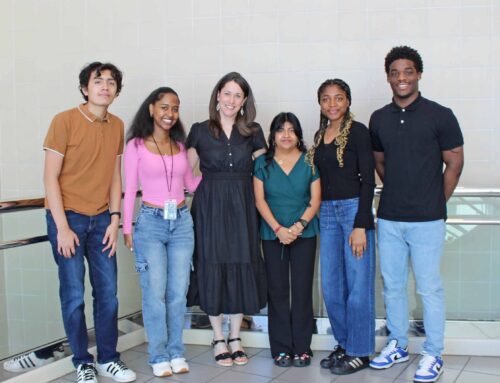The Volunteer Interpreter Service of the Texas Department of Human Services (TDHS) was founded about two years ago to help bridge the communication gap between caseworkers and non-English-speaking clients.
Neighborhood resident Annelies Kahan has served as a volunteer since the program’s inception, interpreting for Spanish-and German-speaking clients. Individuals must interview with a TDHS caseworker to apply for food stamps, Aid to Families with Dependent Children (AFDC) and Medicaid.
When benefits are distributed incorrectly, often due to miscommunication, TDHS is fined by the federal government.
“An accurate exchange of information is essential, so the volunteer interpreters play a vital role in providing TDHS services,” says Sonya Meinert, volunteer interpreter service coordinator.
“Annelies is a triple-A volunteer,” Meinert says. “She always maintains a professional, polite and eager-to-help attitude as she assists our staff.”
Every Tuesday afternoon, Kahan arrives at the neighborhood office of TDHS. She interprets for clients, translates paperwork, recruits new volunteers and helps wherever needed.
Kahan says she prefers volunteering to playing cards and other pastimes.
“I’m available,” Kahan says. “I’m a very practical person. If I don’t put my talents to work, I’d go bananas.”
Kahan also shares her talents with the Attorney General’s office, North Dallas Shared Ministries, La Voz del Anciano and Seniors for Children’s Immunizations at the Martin Luther King Center. A registered nurse, she has volunteered with the American Red Cross for 30 years.
Kahan was recognized for her volunteer efforts recently with the 1994 Humanitarian Award from the North Central region of TDHS.
The Volunteer Interpreter Service program serves 1,300 TDHS staff members across the North Central region of Texas. Currently, more than 20 languages are spoken by members of the program’s volunteer bank.
Some volunteers, such as Kahan, volunteer in a TDHS office. Most volunteers work from their homes and offices, interpreting for clients over the phone.
“Telephone interpretation enlarges the volunteer pool, makes volunteers more accessible to workers and clients in all offices, and allows for scheduling flexibility,” Meinert says.
Meinert says that while the agency has an urgent need for volunteers who speak Spanish, Vietnamese, Kurdish or Russian, individuals who speak any language are welcome.
“We want to serve all people equally,” Meinert says. “If someone comes in speaking Greek, we want to be prepared and have a volunteer available who speaks their language.”
For information about the Volunteer Interpreter Service program, call the Volunteer Center at 826-6767.





